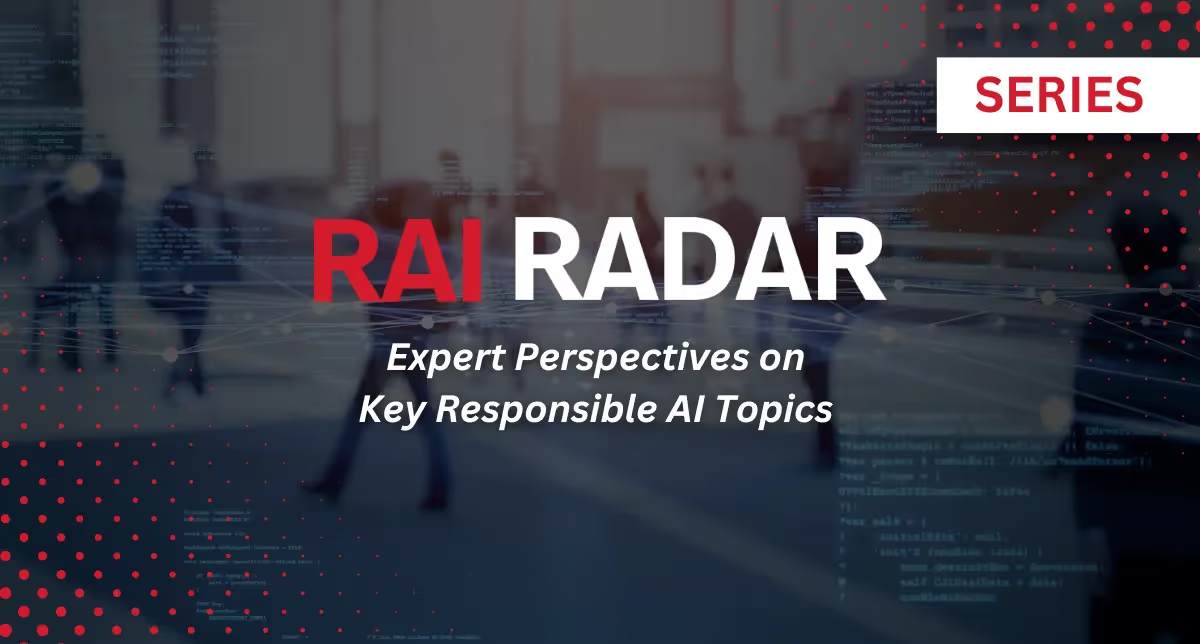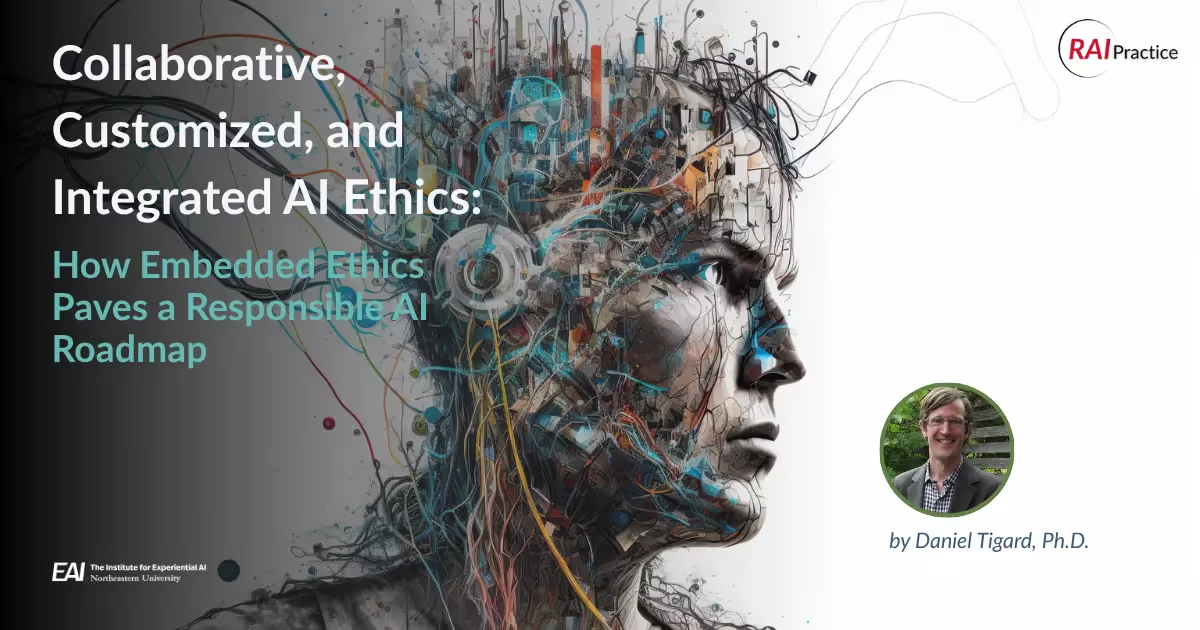RAI Radar: Balancing Innovation With Ethical Responsibility in Healthcare

This week in our Responsible AI (RAI) Radar series, we’re talking about the increasing presence of AI technology in healthcare and the renewed importance of responsible and ethical AI considerations for real-world AI deployment. While new implementations of AI technology within the larger healthcare ecosystem have led to unprecedented advances in medical technology, such innovation has garnered equal amounts of scrutiny.
Here, we’ll explore some examples of AI-augmented innovations, different types of regulatory oversight, and how organizations can implement responsible practices.
Revolutions in Healthcare: AI and Health
As with many other industries, the use of AI technology has transformed the greater healthcare ecosystem. AI innovations in hospital-at-home technology and digital healthcare companies have the potential to provide high-quality medical care to populations that previously faced difficulties in access. Maria Giovanna Trovato, business development manager for AI + Health at the Institute for Experiential AI, believes that “AI isn't simply transforming healthcare; it's revolutionizing patient care paradigms, particularly within hospital-at-home models. In essence, AI-driven solutions in hospital-at-home models exemplify the convergence of innovation, patient-centered care, and healthcare sustainability.”
Through sensor technology, remote monitoring, and many other innovations, AI enables patients to seamlessly continue treatment at home, a trend of great importance in the post-pandemic healthcare landscape. These advancements not only enhance patient comfort and autonomy, but also significantly reduce the risk of rehospitalization. For the elderly population, these technologies could play a crucial role in preventing injuries and other adverse events, fostering independence, and ensuring timely interventions when needed. These applications extend the continuum of care beyond hospital walls, enabling physicians to have a comprehensive view of the patient’s health status and empowering individuals to manage their health proactively while also reducing the strain on healthcare resources.
AI has also allowed for great advancements in medical education and research. Many hospitals and medical schools have utilized AI technology in their teaching curriculum, equipping new practitioners with greater knowledge of the human body and disease. Pharmaceutical companies have used generative AI to accelerate drug discovery and precision medicine, finding cures for rare diseases and enabling patient-specific care patterns.
When Innovation Meets Regulation
With such advances, however, come many new considerations and challenges in protecting patient information and concerns of responsible data use in AI applications. There have been several questions raised about datasets utilized to train AI models for healthcare applications, and algorithmic bias against particular races or socioeconomic groups have caused many to worry about whether the proposed interventions are providing a fair level of care. Companies that release AI visual recognition tools, for example, have come under scrutiny for their algorithm’s inability to properly diagnose certain skin tones, making medical professionals worry about utilizing biased datasets in implementing more universal healthcare measures.
Concerns over access to AI have led to conversations about triaging as well. With generative AI becoming accessible to a larger global population, medical misinformation online, especially on social media, has become a larger concern, creating new obstacles to adequate treatment. Additionally, clinicians and patients alike are concerned over whether there will be greater disparity in health outcomes for populations that have access to AI technology compared to those that do not.
It is important to note, however, that these types of negative impacts are not inevitable for a new technology. Annika Marie Schoene, research scientist at the Institute for Experiential AI, emphasizes that “It is vital to discuss the impact of AI on healthcare as early as possible to avoid increasing adverse health outcomes and health inequalities. This does not just apply to sociodemographic information, but also other factors that can influence health outcomes, such as a person's social, economic, or political circumstances.”
Integrating Responsible AI-based Care
Given this need to be proactive, how should healthcare organizations approach responsible AI within their organization in a long-term, sustainable way?
With current trends in regulation and technology implementation, many hospitals and healthcare providers are looking internally to establish governance principles and ethical AI advisories. Various insurance providers have also come to the forefront, pledging to uphold responsible principles to provide the best care for their patients.
For those in the private sector who develop medical technologies or digital health interventions, the emphasis of Responsible AI should start from the datasets generated to train their models and extend out to considerations of bias, data privacy, and blackbox development processes. Innovation for the sake of innovation often introduces more risk and leaves much gray area that cannot exist for a practice as critical as medicine. Use of AI in healthcare interventions has the potential to do large amounts of good, but we must be constantly cognizant of the problems that have muddied novel intervention strategies in the past.
Our Responsible AI team works through these quandaries with our academic and industry partners. Whether establishing governance strategies for an entire healthcare organization or performing project-specific diligence checks, we can be your partner in your organization’s ethical AI endeavors.
Interested in learning how EAI can help your AI in health applications? Book time here!
Looking to educate your organization’s leadership on RAI? Check our RAI Executive Education program here.



.avif)

